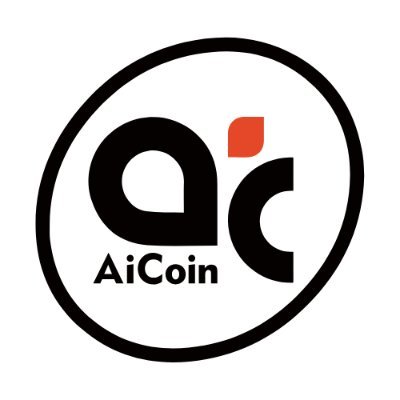Ultra Appoints New COO, Strengthening Leadership to Drive Bold Expansion
London, March 26th – Ultra , the one-stop destination for gamers, publishers, and developers, has appointed Maxime van Steenberghe as its new COO, marking the next milestone in the company’s aggressive expansion plans. Maxime’s appointment underscores Ultra’s commitment to building a powerhouse leadership team to execute its bold vision for the future of gaming.
The gaming industry is at a crossroads – its significant market size and growing global audience, much like the film and music industries before it, demand new models of distribution and engagement. A key opportunity has presented itself for Europe to strengthen its grip on the industry. At such times, it is imperative for champions to pave the way forward, and Ultra is leading the charge.
Effective 24th March 2025, Maxime will spearhead the implementation of the company’s recently unveiled 2025 vision , centered on building Ultra as the go-to gaming platform in Europe and beyond, and underpinned by the following pillars:
Commenting on the appointment, Gus van Rijckevorsel, CEO at Ultra, says:
Ultra has spent years focusing on R&D to perfect its gaming technology. Under new leadership, we’re now taking over to harness this tech stack best. There is enormous untapped potential, but the European gaming industry has long been stuck in outdated models and without the actors to drive change. The market is ripe for a massive shake-up, and Ultra is leading the charge on that. I’m assembling an elite team to seize this opportunity head-on and create value for gamers, publishers, and developers alike. Maxime is the first of many and with his proven consulting expertise, I’m confident that we can once again place Europe at the nexus of gaming, tech, and Web3.
Maxime van Steenberghe, COO at Ultra, adds:
I’m thrilled to be working with Gus again. In my past roles, I have seen first-hand how, as a serial entrepreneur, he transforms vision into reality. What Netflix did for the film industry, Ultra will do for gaming. We’re building a platform that will redefine how games are played, shared, and monetized, and I’m excited to drive our bold next chapter with a hand-picked team who are all aligned on the future of gaming. For so long, gamers, publishers, and developers have had to contend with the status quo, but we’re here to change the game.
Maxime joins Ultra from Circle Strategy, a strategy consulting firm founded by Gus. He brings with him a strong background in consulting, having previously held roles at McKinsey & Company and Accenture. Maxime is also a seasoned entrepreneur and founded two companies – an award-winning ESG service provider Creo² as well as retail brand Flemar, which registered an average annual growth rate of over 100%.
Maxime’s appointment is the latest in a series of Ultra’s recent strategic leadership hires, following the addition of Adrien Moser as its Head of Mergers and Acquisitions in January. Adrien is leading the company’s push into strategic acquisitions, strengthening Ultra’s position as a major player in gaming who is driving the industry’s revolution.
For media inquiries, please contact [email protected] .
The Ultra platform is driven by a relentless dedication to creating the future of gaming, built by gamers and for gamers. Combining traditional gaming with cutting-edge technology, the Ultra platform provides a one-stop shop for gamers and publishers, transforming how people play, create, and connect.
XRP Settlement: Will Ripple Resume Institutional Sales Amid SEC Scrutiny?
In the latest legal turn of events, Ripple dropped the cross-appeal in the ongoing case with the American U.S. Securities and Exchange Commission (SEC), as mentioned in our last news article. This left doubts regarding the fate of its institutional sales. Although the case is approaching its end, the fate of the injunction against the company is a significant topic of debate in the crypto world.
With Ripple having abandoned its cross-appeal, attention is now on whether the SEC will proceed to vacate the injunction that currently prevents the company from selling XRP to institutions. The injunction, which resulted from Judge Analisa Torres’ conclusion that Ripple’s original sales model was an investment contract, has been a pivotal obstacle to the company’s activities in the institutional market.
In an X post , XRP attorney Bill Morgan discussed the recent developments while admitting that even if the injunction is dissolved, Ripple would be required to change its sales strategy to stay within the purview of securities laws. Legal analyst Fred Rispoli concurred and said that any re-launching of institutional sales would involve keeping pace with new regulatory requirements.
Rispoli then explained his stance further, saying, “So to clarify, as I understand it, there will be no more restrictions on Ripple’s institutional XRP sales. They still must conform to securities law but can now sell to, say, hedge funds or private equity firms directly instead of to OTC desks first.” This viewpoint has generated talk regarding how Ripple could modify its sales strategy in order to be compliant with regulations while still holding onto its institutional relationships.
The XRP community has been watching the final stages of the lawsuit, with speculation about what this holds for Ripple’s business operations growing. One top crypto commentator, WrathofKahneman, pointed out how significant the next move by the SEC is, explaining that if the regulatory body makes a move to lift the injunction, then Ripple might start institutional sales anew under new conditions.
At the same time, Rispoli asked a rhetorical question about the enforcement of securities law in the crypto space: “But if a tree sells unregistered securities in a forest and no SEC is there to prosecute it, did the tree do anything illegal?” His remark raises questions about overall regulatory clarity and the SEC’s enforcement strategy for the developing digital asset marketplace. In another controversy, IMF’s Balance of Payments Manual shows that some utility tokens like XRP could be treated as securities, as reported in our previous article.
Even with the possibility of resumed sales, the firm might continue to have compliance challenges. The company will have to ensure that whatever institutional transactions are made, they comply with securities rules to prevent future legal attacks.
Though Ripple’s pullback of its cross-appeal is an indicator of advancement towards settling the case, the SEC’s reaction continues to play a crucial role in deciding the firm’s future action. If the regulatory body asks the court to vacate the injunction, Ripple might get back to conducting institutional sales as long as it makes required changes in its structure of sales.
XRP Healthcare Going Public in 2025 – AI & M&A Expansion Plans Revealed
XRP Healthcare, a pioneer in AI-based healthcare and mergers & acquisitions (M&A), has accelerated its initial public offering (IPO) to the third quarter of this year. Initially scheduled for 2027, the company will now go public on a Canadian stock exchange to fuel its global growth.
Chairman Whitney Lynn, who has worked on more than $10 billion in M&A deals, confirmed the action. “The IPO process has been in motion for several months, and we expect to be publicly listed before September,” he said.
As part of its rapid growth strategy, XRP Healthcare recently acquired Pharma Ville, a pharmacy chain in Uganda, as reported earlier this month. This strengthened its supply chain and securing a foothold in Africa’s $259 billion healthcare market.
“Pharma Ville isn’t just an acquisition—it’s a foundation for large-scale expansion,” said Laban Roomes, Chief Operating Officer. He added,
We’re securing key distribution channels and preparing for the next phase of growth.
With private institutions delivering 50% of the healthcare services across Africa, XRP Healthcare hopes to consolidate and modernize the industry. “Africa’s healthcare system is highly fragmented,” CEO Kain Roomes said in a press release . He added, “The IPO provides capital to strengthen access and quality while driving regional expansion.” The firm already has plans for expansion into Rwanda and Kenya by building on regulatory foundations laid out in Uganda.
For further context, XRP Healthcare’s IPO is advised by ARC Group, an international capital markets advisory company. CEO Abraham Cinta highlighted the effect of the listing: “Becoming a public company could scale their business exponentially, perhaps by a factor of 10 or even 100.”
Charles Chong, EMEA Capital Markets Vice President at ARC Group, continued, “Listing in Canada is just the first step. A U.S. listing is planned within five years to boost global investor exposure.”
The firm is making investments in AI-powered solutions to enhance healthcare accessibility. Its XRPH AI App, which can be downloaded on the Google Play Store and Apple App Store, offers multilingual AI-powered medical information.
New functionalities encompass AI-enhanced image interpretation for the diagnosis of visible symptoms and a forthcoming “Doctor Search & Connect” capability for immediate consultation with certified professionals. XRP Healthcare also gained an exclusive partnership with Isansys Lifecare to roll out the Patient Status Engine (PSE) in Africa. This allows wireless AI-powered monitoring of health to aid home care and decongest hospitals.
Furthermore, in an effort to enhance its scope, XRP Healthcare has collaborated with prominent pharmaceutical providers, such as:
Having trademarked its name within the UK, EU, UAE, and Uganda, XRP Healthcare is carving out a role for itself in the healthcare revolution by way of AI.
NYSE Parent Company ICE Eyes USDC, USYC for New Market Solutions
Intercontinental Exchange Inc. (ICE), the parent company of the New York Stock Exchange, and fintech firm Circle Internet Group announced a memorandum of understanding (MoU) to explore integrating Circle’s USDC and USYC digital assets into ICE’s financial products and markets.
The collaboration aims to leverage Circle’s $60 billion market-cap stablecoin, USDC—a digital dollar pegged 1:1 to the U.S. dollar—and its tokenized money market product, US Yield Coin (USYC), across ICE’s derivatives exchanges, clearinghouses, and data services. Jeremy Allaire, Circle’s CEO, stated the partnership could unlock major new use cases for USDC through ICE’s global network.
Lynn Martin, President of the NYSE, emphasized growing trust in stablecoins as dollar equivalents, noting their potential to reshape capital markets. “We believe Circle’s stablecoins and tokenized digital currencies can play a larger role in capital markets,” she said.
USDC reserves, primarily held in the SEC-registered Circle Reserve Fund (USDXX), are backed by cash and cash-equivalent assets. The stablecoin supports over 600 million wallets globally, facilitating payments, crypto trading, and store-of-value applications.
Under the MoU, ICE and Circle will assess applications for these digital assets within ICE’s ecosystem, including novel derivatives, risk management tools, and tokenized financial instruments. The partnership aligns with ICE’s broader strategy to digitize workflows and expand market transparency.
ICE operates major financial infrastructure, including futures exchanges, fixed-income platforms, and mortgage technology services. Circle, a stablecoin leader, explained on Thursday that it has pushed for regulated crypto adoption in traditional finance (TradFi) since launching USDC in 2018.
The companies did not disclose timelines or specific product details, citing the exploratory nature of the agreement.
免责声明:本文章仅代表作者个人观点,不代表本平台的立场和观点。本文章仅供信息分享,不构成对任何人的任何投资建议。用户与作者之间的任何争议,与本平台无关。如网页中刊载的文章或图片涉及侵权,请提供相关的权利证明和身份证明发送邮件到[email protected],本平台相关工作人员将会进行核查。


 Самая низкая цена
Самая низкая цена Самая высокая цена
Самая высокая цена 















































